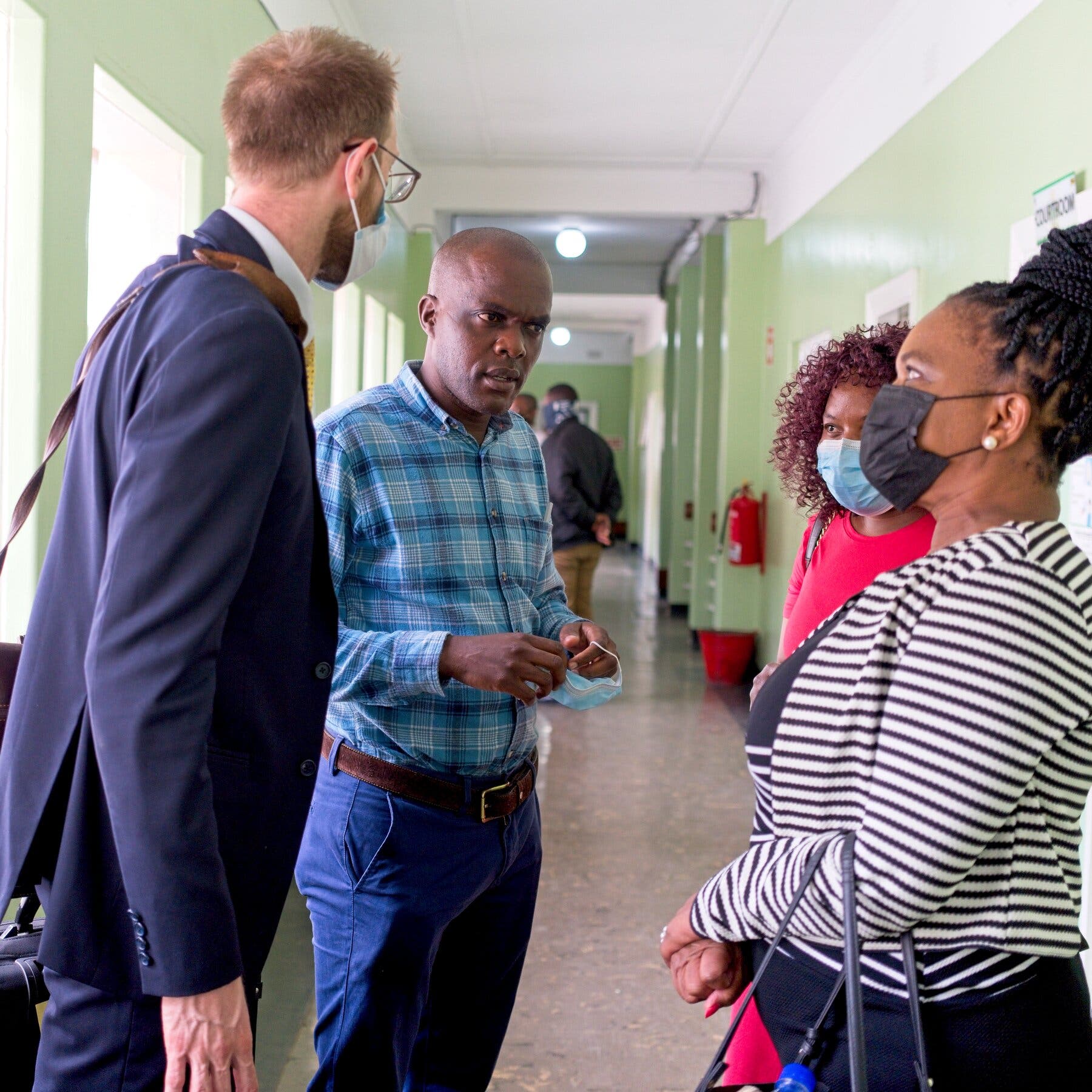Zimbabwean journalist Moyo Jeffrey has been convicted of breaching immigration rules, bringing yet again a spotlight on how the Zimbabwean regime has used law-fare against journalists.
Moyo writes for the New York Times
from Zimbabwe.
Moyo has been accused of obtaining fake press credentials for two Times journalists who entered Zimbabwe last year on a reporting trip.
Moyo’s lawyers said the charges were baseless, and even one lawyer for the government had said the case was “on shaky ground.”
The court fined Moyo 200,000 Zimbabwean dollars, about $615, and imposed a two-year suspended sentence that could be imposed if he is convicted of a similar offense in the next five years.
His lawyers said they would appeal the verdict.
At a hearing in the city of Bulawayo, Magistrate Mark Nzira said that “from the evidence before the court, it is clear that the accused may have connived” to make fake press cards for the two Times journalists.
Analysts called the case part of a wider assault on press freedoms in Zimbabwe, where the economy has crumbled as promised political reforms have failed to materialize under President Emmerson Mnangagwa, after the high hopes that came with the ouster in 2017 of his predecessor, Robert Mugabe.
Reporters have been arrested and hauled before the courts on spurious charges in cases that can drag on for months or years. Some say they have been assaulted by police officers.
Freedom House, a nonprofit based in Washington that measures the strength of political and civic rights around the world, downgraded Zimbabwe from “partly free” to “not free” in recent years.
Experts say that Mnangagwa and his ruling party, the Zimbabwe African National Union — Patriotic Front, are seeking to stifle critics in advance of elections scheduled for next year.
In one recent incident, two journalists were arrested as they covered the arrest of an opposition parliamentarian outside a polling station. One said he was assaulted by a police officer who crushed his phone. If convicted they face up to a year in prison.
The legal difficulties for Moyo, 37, who has worked for The Times and a number of other news organizations, started in May 2021 when he helped two Times journalists, Christina Goldbaum and João Silva, to enter Zimbabwe on a reporting visit.
Moyo obtained press cards for the journalists from the Zimbabwe Media Commission, the state regulator, which they used to obtain visas at Bulawayo airport on May 5. But three days later, an immigration officer canceled those visas, claiming the accreditation was fraudulent. The police ordered Goldbaum and Silva to leave.
Two weeks later, Moyo was arrested on charges of helping the journalists to acquire fake documents.
Thabang Manhika, the Media Commission official who provided them, was also arrested. The two men were tried separately.
Moyo was moved to a prison in Bulawayo where he was held in harsh conditions. -New York Times













